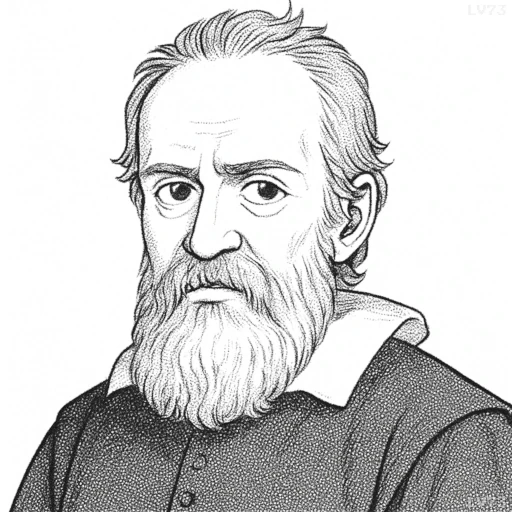“It is surely harmful to souls to make it a heresy to believe what is proved.”

- February 1564 – January 8, 1642
- From the Duchy of Florence (Italy)
- Physicist, astronomer, mathematician
table of contents
Quote
“It is surely harmful to souls to make it a heresy to believe what is proved.”
Explanation
In this quote, Galileo speaks to the dangerous conflict between science and religion when faith is used to suppress scientifically proven facts. Galileo’s own conflict with the Catholic Church over the heliocentric theory, which was supported by overwhelming evidence, highlights his belief that it is harmful to deny truth in the name of dogma. He argues that when a belief is scientifically proven, it should not be branded as heretical or dangerous simply because it contradicts established religious teachings. In Galileo’s case, the Church’s opposition to the heliocentric model, despite the growing body of evidence supporting it, led to his trial and house arrest. For Galileo, the suppression of proven facts in favor of dogma not only hindered intellectual progress but also placed the souls of individuals in peril by deterring them from seeking the truth.
This idea is still relevant today when discussions arise about science and religion, especially in areas like evolution, climate change, or genetics, where established scientific truths are sometimes contested based on religious or ideological beliefs. Galileo’s words encourage us to respect the findings of science and to understand that belief in proven facts should not be seen as incompatible with faith. In fact, Galileo himself was deeply religious and saw his scientific discoveries as a way to understand and appreciate the grand design of the universe. His statement serves as a reminder that intellectual integrity and spiritual growth should not be at odds with one another.
Galileo’s emphasis on the harmful consequences of denying scientific truths also speaks to the broader issue of academic freedom. Suppressing knowledge, whether through religious or political means, can have lasting effects on the development of human understanding and the advancement of society. When truths are censored or denied, it not only harms the pursuit of knowledge but also hinders personal and collective growth. In contemporary society, Galileo’s message remains crucial as we continue to navigate the balance between belief systems and the pursuit of scientific progress. His words remind us that the pursuit of truth—whether through faith, reason, or science—should always be encouraged, and never restricted by unfounded fear or authority.
Would you like to share your impressions or related stories about this quote in the comments section?
